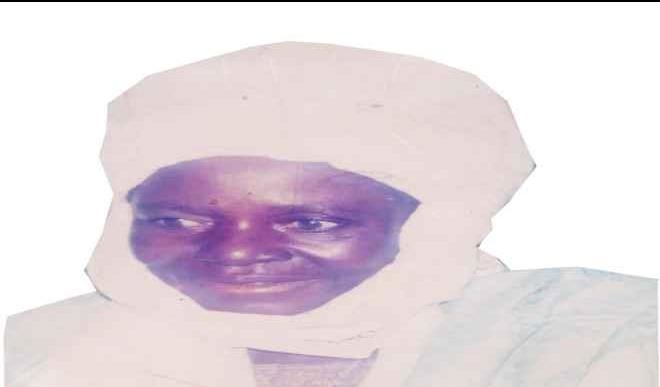
Knubwada is one of the many vassals of the legendary Queen Amina of Zazzau. Centuries after the demise of the warrior Queen, the area which is now a district still experiences her domineering influence as only women within her lineage rule.
The Sarauniyar Knubwada, Hajiya Hadija Ahmed sat on one of the visitors settees in her palace court when Daily Trust visited her palace last Tuesday. A few feet away, her village heads, all male, squat on the carpet in front of her.
Names of each of the community heads within the Knubwada district in Muya local government area of Niger State, were then called from what looked like a register to ascertain their presence by the palace secretary, after which the agenda of the day was read out. The Sarauniyar then takes over the proceedings.
However, unlike such meetings in the past, her voice has somewhat lost the characteristic authoritativeness as she visibly struggled to convey her message amidst coughs. Her eldest son, who is also the village head of Mangroro, Prince Danjuma Salihu, told our correspondent an hour later, that the Sarauniyar is just recovering from an illness that has kept her away from the public view for over a year.
Beyond the constraint of ill-health, at over 70, there are also tell-tale signs of old age written all-over her, thereby slowing down the once agile Queen that has brought honour and uncommon development to her kingdom. In her stead, Danjuma now oversees the administration of the district and runs errands.
But that is how far he could go; as a man, he can never hope to step into her aged mother’s shoes. Her two maternal uncles, Usman and Suleiman, who assumed rulership of the kingdom shortly after the area was liberated by an army led by the legendary Queen Amina of Zazzau from an invasion, never survived two weeks on the throne.
Knubwada is said to be the administrative headquarters overseeing several Gbagyi speaking communities, which had come under attack by ‘foreign’ mercenaries then. Queen Amina and her conquering army were said to have been on an expedition through the territory and had to stop over to ward off the invaders.
The name Knubwada itself emerged as a result of the happenings at that time. The natives and their warriors used to retreat into an ancient cave and mountains whenever an enemy approached before launching an attack. According to Prince Danjuma, there was a traditional rite which natives perform before a major war.
“They prepare Kunu called Kum bada in Gbagyi, laced with protective medicine. They will now call on everybody to come and drink the mixture, and that was how the community derived its name,” he explained.
There is also a myth surrounding a large stone in the area called Zagura, which always alerts the natives when enemies approach. “When an invading army approaches, the stone will make an explosive-like sound warning the natives to take cover in the cave and mountains,” he said.
When peace returned to the area, Queen Amina rode towards the present Suleja, leaving some of her entourage, which include Usman, Sulieman, Rahamatu and others behind. The natives then persuaded one of them to take over the reign for fear of another invasion. Usman was then asked to assume the throne but he was to die a week later. Suleiman, his twin brother was also approached to inherit the throne, but he was said to have been reluctant. He was to cave in to pressure, especially from Rahmatu, his elder sister but also died nine days after he was turbaned.
The natives then consulted the oracle which decreed that only the female could survive as rulers of the kingdom. Rahmatu was then persuaded to assume the reign. She was said to have ruled for over 60 years as a vassal for Queen Amina. Among the innovations she brought to the kingdom was its fortification with earthen walls, a protective barrier to ward off any intrusion.
Pats of the walls still exist in the old Knubwada along with the ancient cave and the protective stone. She was to be succeeded by Queen Hadija who ruled for 55 years; Queens Maimuna, 41 years; Fati (1), 37; Fati (II) 33 who held sway for 33 years and died at the age of 113. In order not leave a vacuum after her demise, her brother, Ahmed was asked to act until a substantive ruler emerged, but he decided to stay put against the advice of the elders.
A serious epidemic of chicken pox was said to have hit the kingdom, with consequent deaths. Ahmed was also said to have lost his sight to the epidemic. Consultations were made and it was discovered that his refusal to abdicate the throne for the chosen candidate, was responsible for the anomaly.
He was banished from the kingdom to Bushi, where he later got better and resides. The current Queen, Hadija Ahmed was then turbaned as the new Queen in 2000. The village head of Kabla, Malam Mohammed Sani told our correspondent that Sarauniyar, like Queen Amina is a woman of valour and courage whose influence transcends other kingdoms, especially those with historical links with Knubwada such as Suleja and Kontagora.
Queen Amina was said to have camped in the present day Suleja after her exploits in Knubwada with her influence also stretching to the present Abuja. She was said to have put two members of her entourage, Suleiman and Abu in charge of the two locations before she journeyed into Kotangora. Both areas bear the names of the two lieutenants today.
Sarauniyar was said to have exploited these vassals of Queen Amina to advance her kingdom. By the arrangements, her sons could also be titled chiefs in Suleja emirate. The village head of Kabla confirmed that the district has witnessed uncommon development since the current Queen took over.
Today, the district boasts of four village heads with each having about 30 communities over which he superintends. For easy access, she has moved the administrative headquarters of the district to what is now called new Knubwada along Minna Sarkin Pawa road. The new headquarters boasts of electricity, boreholes, a market, a primary school and a primary health care center.
Other communities also boast of their share of her influence, like the Junior Secondary school in Zanzaga and primary healthcare centres, among others.
However, like most of the districts across the state, Knubwada has tales of sorrow to tell. Communities around the ancestral headquarters are under constant attack by cattle rustlers and bandits.
Kabla, Zanzaga and Mangororo forests, which stretch to the neighbouring Kaduna State, have long become a den of bandits. Our correspondent was persuaded to jettison the idea of travelling to the area by the Queen last Tuesday. “I cannot guarantee your safety my son; I rather you live to tell the story of our many challenges to the world from here,” she appealed.
The village head of Kabla, Malam Isah confirmed Sarauniyar’s fear in an interview, when he said that three soldiers met their deaths at the hands of the bandits shortly before the month of Ramadan. The marauders, according to him also torched the Toyota Hilux Van, in which the solders rode. Since the incident, many natives have fled their communities around the forests, abandoning their farms.
Sarauniyar would want more security presence in the area, even as she wants the forests to be put to effective use so that they don’t serve as hiding places for criminals. She craves for more infrastructural development of the district, like access roads, pipe borne water, electricity and secondary health facilities.
She is also concerned about the fact that there is only a junior secondary school in the area. “The district deserves more and even a senior secondary school to allow for transition for our children,” she appealed.
She said in the absence of a senior secondary school, students from the area who graduated from the junior secondary school, have to go as far as Sarkin Pawa and even Minna for their senior secondary education.
She also wants more emphasis on girl-child education and women empowerment, the key area, which has hitherto earned her recognition across the country. The crusade had drawn attention of International organizations like the United Nations Children Education Fund (UNICEF) to her domain. This could be appreciated in the few facilities the body initiated in the area. The efforts have also earned her awards within and outside the state.
“I want to see girls from my district graduating as medical doctors, engineers, lawyers. I want them to be at the forefront in all facets of our endeavours because we can’t continue to be passengers driven around by the men. In fact I always nurture this craving that one day, a woman will rise to become the President of this country; and mark my word, that day will come,” she said with a glow in her eyes.
However as the nation awaits that day, perhaps, Sarauniyar’s immediate concern should be a successor plan for the kingdom. Danjuma, her eldest son has ruled out the possibility of him succeeding his mother because of the age-old arrangement, which prohibits men even in the face of advancement and transformation. The village head of Kabla, who is also one the kingmakers, said the kingdom and its people are not in a hurry to jettison the succession tradition. “Definitely not in my life time,” he exclaimed.
As it were, either of the Sarauniyar’s two daughters, Hadija and Hussaina or her many sisters could emerge, but that choice also lies with the traditional stone, the Zagura after due consultations on the matter in the not so distant future as the Sarauniyar’s strength wanes and her health deteriorates. Until then, Danjuma, the village head of Mangororo, holds brief in his mother’s stead.

 Join Daily Trust WhatsApp Community For Quick Access To News and Happenings Around You.
Join Daily Trust WhatsApp Community For Quick Access To News and Happenings Around You.


